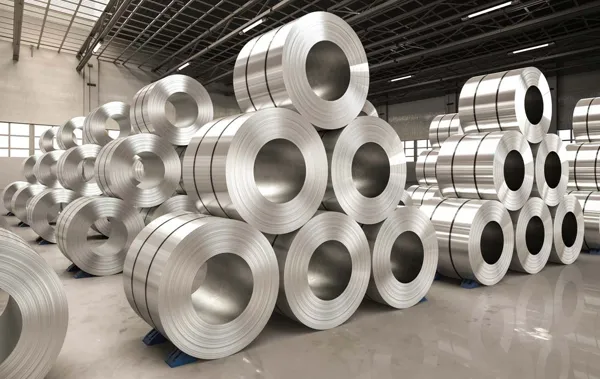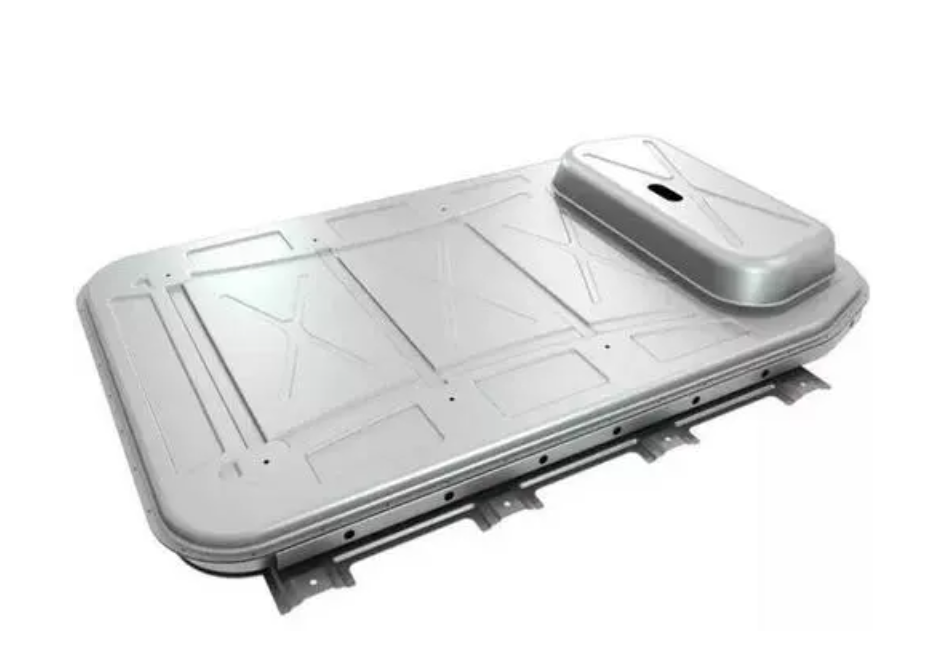With the rapid development of electric vehicles (EVs), the demand for battery housing materials is continuously increasing. Battery housings need to possess excellent mechanical properties, corrosion resistance, and thermal conductivity to ensure the safety and efficiency of the batteries. 3003 aluminum coil, with its unique properties, has become the preferred material for manufacturing EV battery housings.
Properties of 3003 Aluminum Coil
3003 aluminum coil is an aluminum alloy primarily composed of manganese, and it boasts several notable properties:
1. Excellent Corrosion Resistance: 3003 aluminum coil exhibits outstanding corrosion resistance, especially in humid and corrosive environments, which is crucial for battery housings that operate in complex conditions.
2. Good Formability: 3003 aluminum coil shows excellent formability in both cold and hot working processes. It can be shaped through various methods such as stamping, stretching, and bending, making it adaptable to various battery housing designs.
3. High Strength: Although 3003 aluminum alloy is not the strongest, it offers a good balance of strength and ductility, providing sufficient mechanical support to ensure the safety of the battery under various conditions.
4. Excellent Thermal Conductivity: Aluminum has superior thermal conductivity, which helps dissipate heat effectively, maintaining stable temperatures during battery operation and enhancing the battery’s efficiency and lifespan.
5. Lightweight: With a lower density compared to traditional steel, using 3003 aluminum coil significantly reduces the weight of the battery housing, improving overall vehicle efficiency and extending driving range.

Applications of 3003 Aluminum Coil in Battery Housings
As a crucial component that protects the battery modules, the design and material selection for battery housings directly impact battery performance and safety. 3003 aluminum coil is primarily used in the following aspects of battery housings:
1. Outer Shell Structure: The outer shell made from 3003 aluminum coil provides high structural strength and impact resistance, effectively protecting battery modules in case of vehicle collisions or other external impacts.
2. Insulation and Heat Dissipation: Batteries generate a substantial amount of heat during operation. The high thermal conductivity of 3003 aluminum coil facilitates quick heat dissipation, preventing overheating. Its good insulation properties also effectively shield the battery from external high temperatures.
3. Corrosion Resistance: Battery housings are exposed to complex environments, including road salt and moisture. The corrosion resistance of 3003 aluminum coil ensures that the housing remains intact over long periods, maintaining its structural integrity.
4. Lightweight Design: Given the sensitivity of EVs to weight, using lightweight 3003 aluminum coil significantly reduces the weight of the battery housing, thereby lowering overall vehicle energy consumption and improving driving range.

Considerations When Choosing 3003 Aluminum Coil
When selecting 3003 aluminum coil for battery housing manufacturing, consider the following aspects:
1. Supplier Selection: Choose reputable suppliers with quality assurance to ensure the aluminum coil’s consistent quality, meeting the manufacturing standards for battery housings.
2. Surface Treatment: Depending on the battery housing’s operating environment, select appropriate surface treatments such as anodizing to enhance the aluminum coil’s corrosion resistance and wear resistance.
3. Thickness and Dimensions: Choose the appropriate thickness and dimensions based on the battery housing’s design requirements, ensuring an optimal balance between strength and weight.
4. Processing Performance: Ensure that the selected 3003 aluminum coil has good processing performance to accommodate various forming processes, ensuring production efficiency and product quality.
Conclusión
3003 aluminum coil, with its excellent corrosion resistance, good formability, high strength, superior thermal conductivity, and lightweight characteristics, is the ideal material for manufacturing EV battery housings. As EV technology continues to advance, the application of 3003 aluminum coil in battery housings will become more extensive and profound. By selecting high-quality 3003 aluminum coil and combining it with advanced processing techniques, it is possible to create safer and more efficient EV battery housings, driving the sustainable development of the electric vehicle industry.


